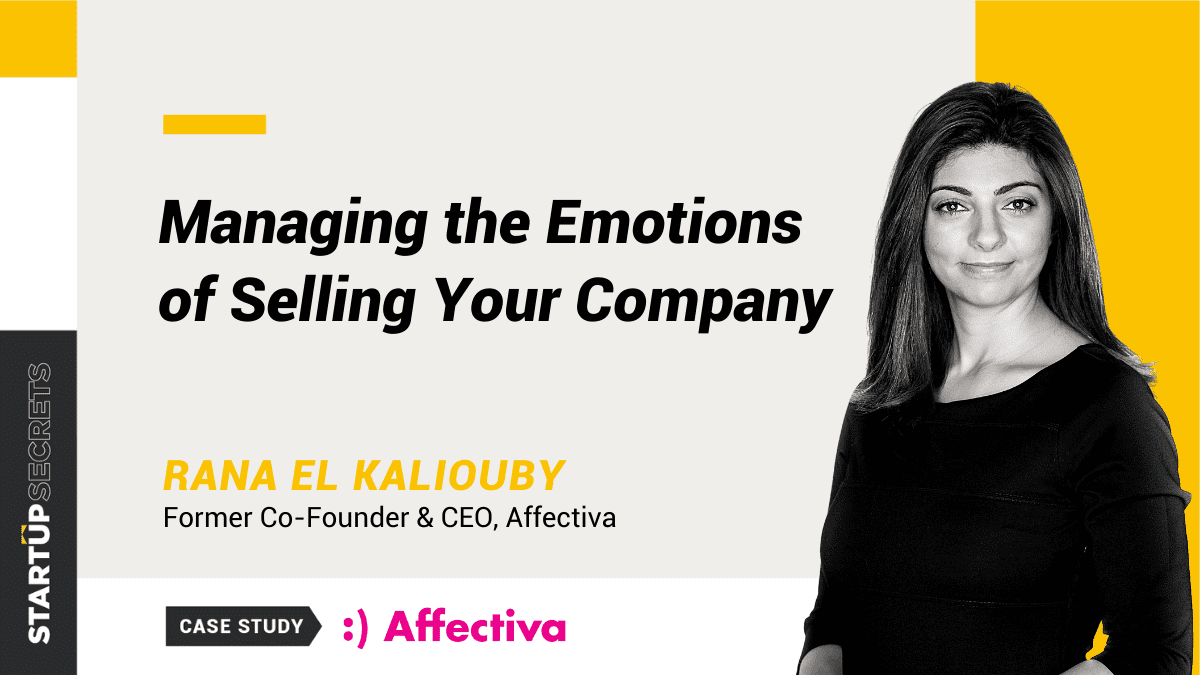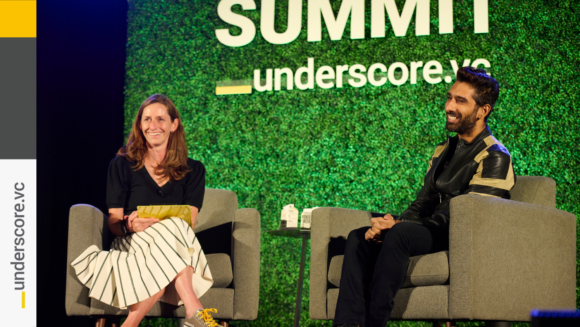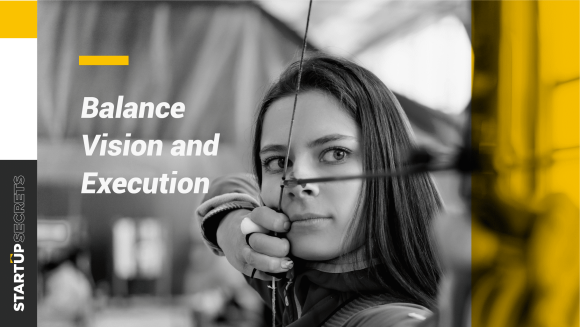The goal of most venture-backed founders is to deliver a big exit; it comes with the turf of taking venture funding. Many may hope for a mega-successful IPO. Others might envision a major acquisition, resulting in a huge return on investment alongside the street cred they get from the acquirer’s well-known brand.
While success stories are shouted from the rooftops, we rarely hear the stories of founders whose outcomes didn’t live up to their own expectations. Yet they’re much more common than we think.
In June 2021, Rana el Kaliouby, the former Co-Founder and CEO of Affectiva, the creator of emotion AI, successfully sold her company to Smart Eye, the leading provider of human insight AI, technology that understands, predicts, and supports human behavior in complex environments.
Smart Eye is a company Rana believes in. She deeply respects its leadership team, vision, and technology. She’s excited about the company’s future. And through the acquisition, she returned all of Affectiva’s investors’ money. But despite these external indicators of success, Rana’s experience of going through an exit was deeply complex.
In this interview, she gives a vulnerable, unfiltered account of what it was like to sell her company.
A Shift in Perspective
Affectiva had raised a total of $53M in strategic and venture funding over the course of 12 years. They were about to raise another round when, suddenly, the pandemic hit. Everything came to a screeching halt, and it became clear that raising the next round would take much longer.
Affectiva’s board was going to bridge the company, until Rana had a change in perspective. “I woke up one fall day in October, and I took a step back,” she says. “We had been going this alone… would it make sense to partner? Could we join forces and get there faster and in a more efficient way?”
Over the years, Rana had built strong relationships with several competitors. She originally met Martin Krantz, Founder and CEO of Smart Eye, at CES in 2020. They were on a path to compete, but they were also complementary in many ways. “Smart Eye had been around for 20 years, and we were the newer kids on the block,” says Rana.
A few months after they connected, Martin asked: Are you open to an acquisition?
“Over the past 10 years, there were several opportunities to exit, but I was just not open to it,” Rana says. “But I didn’t want to be the founder who’s just attached to their vision and would never sell.” Thus, the journey began.
Are you making the right decision?
Rana took a pragmatic approach to make this decision, simulating all possible outcomes with her executive team to understand the company’s options.
- What would happen if they raised additional capital? Affectiva had a pretty complex cap table at the time, so it likely would have been a recap. “That had its complexities,” says Rana.
- What would happen if they partnered with another company? Initially, Rana imagined a strategic partnership with one of the companies in their ecosystem, rather than an acquisition. There were still many interests she wanted to explore.
- What would happen if they eventually ran out of money? This was a worst-case scenario—and though it was unlikely, the pandemic was creating a lot of uncertainty. But as she reflected, Rana realized, “Even if we go down, I’ll take a lot of these learnings to what’s next.” And as she thought about her team, she realized, “The team’s going to be fine; we’re all going to be just fine.”
Lastly, she had to think through the personal implications. “I took off my Affectiva hat, and I put the Rana hat on,” she says. She had been building this company for 11 years. And as a single mom whose daughter had just started college, she had a lot at stake. “People don’t talk about this, but my entire financial wellness was tied to this one company,” she says. “It would be a good opportunity to have some liquidity, honestly.”
Even though she had never considered selling Affectiva, “At this particular moment in time, I felt it was the right thing to do for the company,” she says. The right buyer had come along at the right time.
Manage Tough Emotions by Building Trust
Despite having made a decision, going through the acquisition was a very emotional and challenging experience for Rana. “You have feelings of guilt—like you’re giving up on your team and your vision, but you also want to be pragmatic,” she explains. “I underestimated the amount of energy that would go into it.”
Managing these emotions involved building trust and being open with the acquiring team. For Rana, that was done remotely due to the pandemic. She says, “I remember telling Smart Eye’s CEO, ‘You’re evoking all of the mama bear feelings in me because this company is my baby!’ And he actually said, ‘You’re evoking the papa bear feelings in me as well!’” It became an inside joke they shared.
Don’t Forget to Prioritize Yourself
Like anyone, when an entrepreneur finds themselves so stressed, they can start to make bad decisions. “It’s very easy to deprioritize yourself when going through an exit,” says Rana. Instead, she made a conscious effort to sleep well, eat well, and continue exercising no matter what. “I think that kept me sane,” she says.
Reconciling Two Talk Tracks
“I’m excited about what we’re doing at Smart Eye, and I’m committed to growing our position in the automotive industry and beyond,” she says. But the transition has been challenging. “My identity was so wrapped in Affectiva,” she says. “I’m going through an identity crisis.”
When reflecting on the sale, she has a “dual talk track” in her brain. In one, she’s immensely proud of Affectiva’s journey and what the company accomplished: how Affectiva pushed the industry forward by creating a new category of emotion AI, how her team has grown both personally and professionally, and how they created and lived such strong core values.
The other talk track is less positive. “On the other hand, I feel like I’ve been an epic failure,” Rana says. “I was responsible for the money I took from our investors.” When they exited at just over $75 million, all their investors got their money back. But from a financial perspective, “This was not a home run by any stretch of the imagination,” she says.
But ultimately, with failure comes learning. “One thing I learned through my time at MIT is that we never call anything a failure,” she says. “When you prototype something, and if it doesn’t quite work, you iterate and shift.”
People have reminded Rana that she did not just sell off her company. Rather, Affectiva effectively merged with a company with a shared vision, culture, and values. Plus, all team members were invited to join the new company.
“Together, we’re advancing what Affectiva started,” Rana says. “I need to remind myself that this is not the end of Affectiva, it’s a new chapter.” She’ll take these learnings with her as Deputy CEO of Smart Eye.












